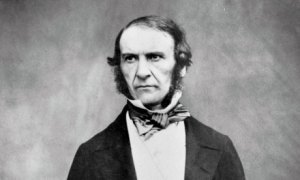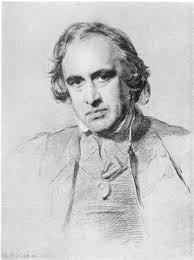Antidisestablishmentarianism: the longest word in English (or not?). History of an enigma.
 1 The longest word?
1 The longest word?Everyone knows that it’s “the longest word in English”, with its 28 letters. Actually, it isn’t. The “longest word in any dictionary” depends on the dictionary: in the Oxford Dictionary Online it is pneumonoultramicroscopicsilicovolcanoconiosis, which weighs in at 45 letters; that word is not in Merriam-Webster Online (though it is in their Unabridged), nor is antidisestablishmentarianism.
2 Has it always been “the longest word”?
I can’t say when antidisestablishmentarianism acquired its mythical status (but see 3 below for some evidence).
However, a search of Google Ngrams shows that in 1901, in an issue of the Writer, A Monthly Magazine for Literary Workers, founded by two Boston Globe journalists, it was the four-letters-shorter disestablishmentarianism that was cited as the longest word in English.  (The magazine is still going strong). And in Current Advertising of the same year, there is the following quote: “If anybody really wants to know, it may be authoritatively stated that the longest legitimate word is disestablishmentarianism. Don’t let the fact that it isn’t in the dictionary worry you. The word was coined and used by the late Mr. Gladstone…” (that attribution is probably apocryphal).
(The magazine is still going strong). And in Current Advertising of the same year, there is the following quote: “If anybody really wants to know, it may be authoritatively stated that the longest legitimate word is disestablishmentarianism. Don’t let the fact that it isn’t in the dictionary worry you. The word was coined and used by the late Mr. Gladstone…” (that attribution is probably apocryphal).
3 Is it a “real” word?
3.1 Yes, as I think this blog will demonstrate. However, a bit like the running machine that sits, rarely or never switched on, in some people’s homes, it is more exciting as an idea than in reality: it is more talked about and discussed qua longest word than ever actively used. Merriam-Webster goes so far as to say that “Merriam-Webster doesn’t enter antidisestablishmentarianism in any of its dictionaries because the evidence indicates that the word is almost never used anymore”.
It is not, of course, actively used, because the circumstances that gave rise to it no longer exist. It is a treasured fossil, a curiosity.
3.2 Interestingly, the first OED entry for antidisestablishmentarianism is from Brewer’s Dictionary of Phrase and Fable of 1923, at the entry for long words. However, the Bulletin of the Grosvenor Library, Buffalo (Volumes 1-4, p. 168), has this from 1918: “I can go this one better, with a word which I have been told, ever since childhood, was the longest in the English language, it is antidisestablishmentarianism, containing 28 letters, and meaning, of course, the doctrine of those who did not wish…” The “this” apparently refers to an earlier claim in the same publication that anthropomorphologically (23 letters) was the longest.
3.3  And a 1919 edition of Everyland: A Magazine of World Friendship for Girls and Boys has this: “Dorothy Knudson says it is “antitransubstantiationalistically” : Alison Bryant, Rose Gibson, Lucretia Ilsley, and Isabel Weedon say it is antidisestablishmentarianism.” (Vol 10, Issues 7-12, p. 336.)
And a 1919 edition of Everyland: A Magazine of World Friendship for Girls and Boys has this: “Dorothy Knudson says it is “antitransubstantiationalistically” : Alison Bryant, Rose Gibson, Lucretia Ilsley, and Isabel Weedon say it is antidisestablishmentarianism.” (Vol 10, Issues 7-12, p. 336.)
From which it is clear that by that date several readers of the magazine took anti…ism to be the longest. As regards the even longer, 33-word contender, antitransubstantiationalistically, that it was ever actually used looks extremely dubious.
4 Why is it known as the longest word?
Partly, I suggest, because it consists of familiar individual parts that make it possible to remember, unlike, say, the monster mentioned at 3.3 above. It also has, to my mind at least, a distinct personality.
I can remember being told about it as a child. Its eleven (or twelve, depending) syllables with their repeated i and s sounds had an amazing dynamism, like a choo-choo building up steam towards the main stress on the eighth. And its two negative prefixes, anti- and dis-, seemed bafflingly at loggerheads with one another, creating a strange double negative. It had all the magical, talismanic power that words can have for young children. Once heard, it can never be unremembered.
5 What do all the different bits mean?
It is also a remarkable example of how prefixes and suffixes can be coupled together, a bit like railway carriages. If you uncouple them, what do you get? anti-dis-establish-ment-arian-ism. In other words, the locomotive of this word is the verb establish. Why is that?
6 It’s all to do with politics and religion
In England, the Church of England is “established”. This means it is the official Church, and has several links with the State. For instance, the monarch is its head, and any measures passed by the Church’s governing body have to be approved by Parliament. (In the US, in contrast, no Church has this constitutionally privileged role).
Historically, this dominance of the Church of England has been disputed—and in some circles still is. Those in favour of maintaining it as the established Church were called establishmentarians…
6. 1 Establishmentarian
The OED records this word as a noun from 1846, and as an adjective from 1847: “Those who, like myself, are called High Churchmen, have little or no sympathy with mere Establishmentarians.”—Hook, 1846.
It seems that Gladstone did not much care for the word: in the Contemporary Review of June 1875 he wrote “The prosecutors…are strongly (to use a barbarous word) establishmentarian.”
(It is worth remembering that Gladstone was a considerable classical scholar, and will no doubt have had firm views on what were barbarous—that is questionably formed from an etymological point of view—words).
6.2 Establishmentarianism
And the philosophy upheld by establishmentarians is of course…establishmentarianism. In 1873 the noted philologist Fitzedward Hall wrote of Richard Chenevix Trench  (the admirer of female rowing crews and original inspiration for the creation of the OED) that “Establishmentarianism was wont to roll over the prelatial [Abp. Trench's] tongue“. Chenevix Trench was in fact Archbishop of Dublin when the C of E was disestablished in Ireland, in 1871.
(the admirer of female rowing crews and original inspiration for the creation of the OED) that “Establishmentarianism was wont to roll over the prelatial [Abp. Trench's] tongue“. Chenevix Trench was in fact Archbishop of Dublin when the C of E was disestablished in Ireland, in 1871.
6.3 A secondary, more modern meaning
The adjective cum noun establishmentarian also has a more modern meaning, as the OED defines it: “Pertaining to or characteristic of the establishment; supportive of or favouring the establishment and its values; establishment-minded, conservative”. First recorded, it seems, in the economist J.K. Galbraith’s journal in early 1962. A more recent example is: In 1976 , he left the abortion rights league, in part because he believed it was becoming too establishmentarian” (NYT, 2006).
6.4 Disestablishmentarian
Those in favour of disestablishing the Church were, naturally, disestablishmentarians, first recorded from 1885 in the unrevised OED entry, but traceable in Google Ngrams at least as far back as The Church Herald of 1874: “…no public event has done more mischief as regards turning men’s minds into a Disestbalishmentarian channel than the recent policy of the Bishops’ Bench as expounded by the two Primates.”
And their philosophy is disestablishmentarianism (OED, 1897).
6.5 Antidisestablishmentarian(ism)
Those opposed to disestablishment are, inevitably, antidisestablishmentarians. If you knocked off the first two prefixes, you would get back to establishmentarian, which would not, however, mean exactly the same thing. The first OED entry for antidisestablishmentarian is from the journal Notes and Queries of 1900. And for antidisestablishmentarianism from 1923, as previously mentioned, which takes us full circle
Filed under: Dictionaries & Lexicography, Grammar, Meaning of words, OED, Oxford Online Dictionary, Word Histories




